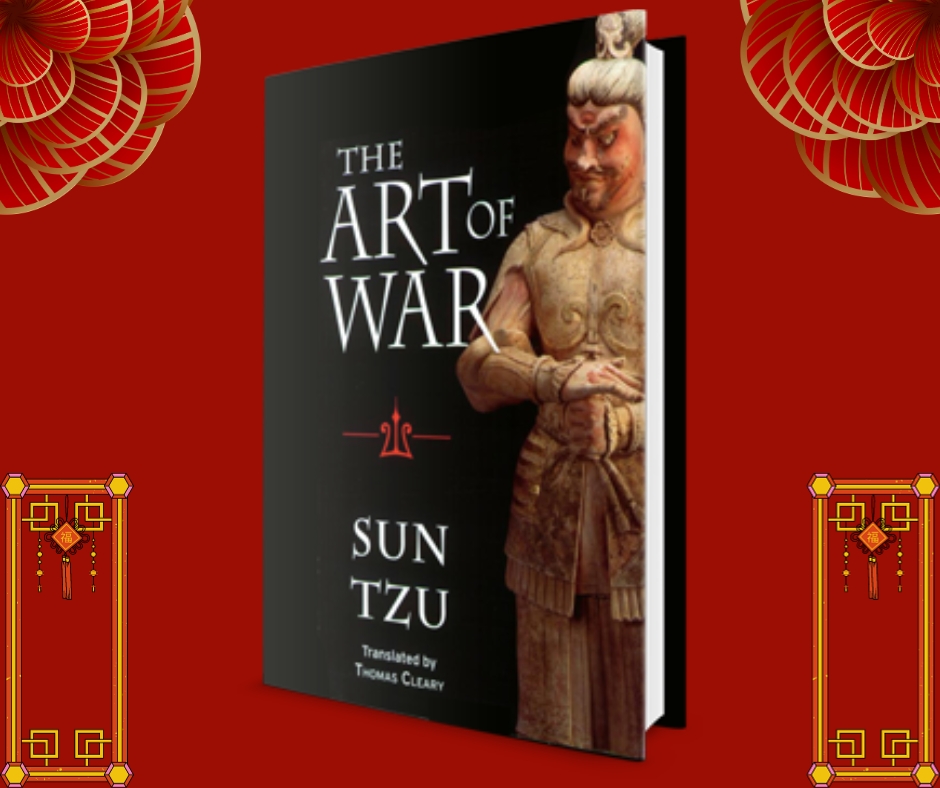Sun Tzu’s Art of War: Ancient Wisdom for Modern Strategy

Sun Tzu’s “The Art of War” is a timeless masterpiece on strategy and warfare, transcending its origins in ancient China. Written over 2,500 years ago, this classic text offers insights and principles that extend far beyond the battlefield, finding relevance in fields as diverse as business, sports, and diplomacy. In this blog post, we’ll delve into the wisdom of Sun Tzu’s “The Art of War,” exploring its key concepts and their applications in our contemporary world.
1. Sun Tzu: The Legendary Strategist
Before diving into the text itself, it’s important to understand the man behind “The Art of War.” Sun Tzu was an ancient Chinese military general, strategist, and philosopher. His enduring legacy lies not only in his military successes but in his profound understanding of the art of strategy and leadership.
2. The Fundamental Principles
- The Tao of War: At the heart of Sun Tzu’s philosophy is the idea that war is a matter of life and death. It is a deeply philosophical work, emphasizing the importance of understanding the fundamental principles of conflict.
- Know Yourself and Your Enemy: Sun Tzu stresses the importance of self-awareness and understanding your adversary. By comprehending your strengths and weaknesses, as well as those of your opponent, you can make informed and strategic decisions.
3. The Five Key Factors
Sun Tzu identifies five key factors in any successful military campaign, which also translate into broader life lessons:
- The Way: Having a clear and achievable goal is paramount. This applies to every aspect of life, from career goals to personal aspirations.
- Heaven: Understanding external factors and adapting to change is essential for success. The world is constantly evolving, and the ability to adjust one’s strategy is crucial.
- Earth: Mastering the terrain is not limited to geographical features but extends to understanding the environment in which you operate. In business, this might be market dynamics, while in personal development, it relates to your immediate circumstances.
- Leadership: Sun Tzu emphasizes the importance of leadership in guiding and inspiring your team. Whether you’re a manager or a team member, leadership qualities are critical.
- Method and Discipline: In warfare, this refers to the tactics and strategies employed. In life, it’s about the systematic approach and discipline you apply to achieve your objectives.
4. Applying Sun Tzu’s Wisdom in the Modern World
- Business Strategy: Sun Tzu’s principles can be applied to business, from understanding your competition to adapting to market changes.
- Leadership and Management: His insights into leadership and the importance of teamwork are invaluable for managers and leaders.
- Diplomacy: Sun Tzu’s emphasis on negotiation and conflict resolution has made “The Art of War” a key resource in diplomatic circles.
- Personal Development: The concepts of self-awareness and adaptation can be applied to self-improvement, personal growth, and achieving life goals.
5. The Paradox of Sun Tzu’s Wisdom
The paradox of Sun Tzu’s wisdom is that while it provides invaluable guidance in achieving victory, it also underscores the importance of avoiding conflict whenever possible. Sun Tzu’s ultimate aim is not merely to win battles but to secure victory with minimal loss and disruption.
Conclusion
Sun Tzu’s “The Art of War” is more than just a manual for military strategy; it’s a timeless guide to the art of strategic thinking and leadership. Its principles are as relevant today as they were over two millennia ago, offering profound insights into human nature, competition, and the pursuit of success in various aspects of life. By understanding and applying these principles, you can harness the wisdom of this ancient text to navigate the challenges of the modern world with skill and wisdom.



